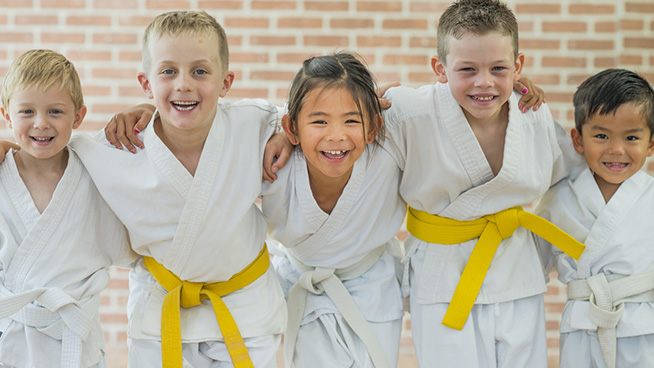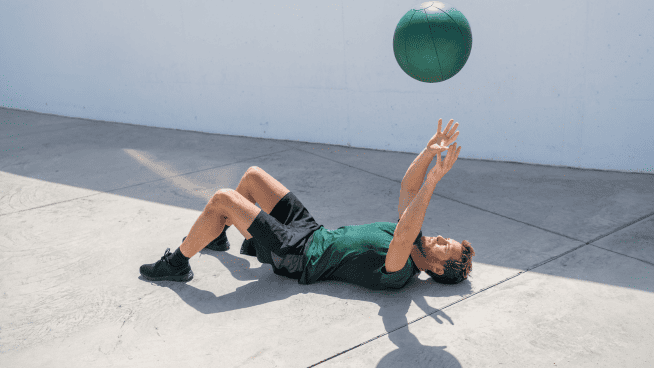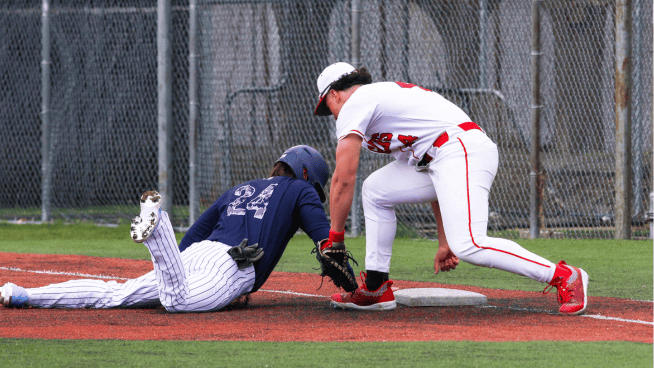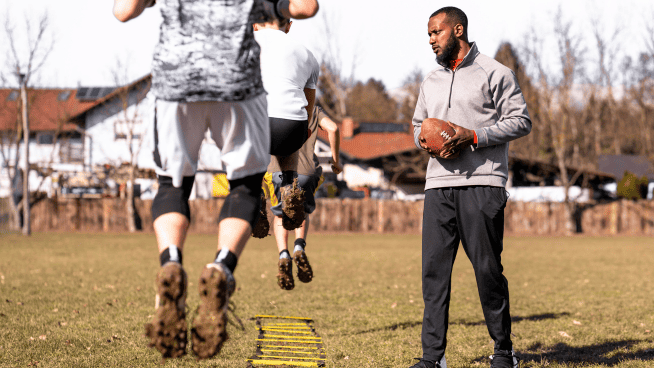How Martial Arts Enhances Youth Athletes Sports Performance
Sports can teach kids several great qualities. And, the same goes for martial arts; it is not just about kicking and punching. It hones in on a deeper sense of self; to discover physical, mental, and spiritual attributes and abilities. These abilities help kids grow positively and have a significant cross-over into other sports and life.
Many great athletes like Phil Mickelson, Kareem Abdul Jabar, Kobe Bryant, and Herschel Walker practiced martial arts and became very successful in their sport. Martial arts are a discipline that can teach your child honor, respect, focus, and empathy and, at the same time, develop their reflexes and reactions of a cat. It teaches not only to improve their body but their brain as well.
1) Discipline
Martial arts teach you to have an open mind, instructing that “one” is always a student no matter how advanced they are to continue evolving and progressing. Discipline helps you think more rationally than impulsively, giving you the ability to control your emotions. Having discipline helps you stick to your training goals, sport, academics, etc., making you more responsible and dependable.
2) Respect
Martial arts teach respect for yourself and your opponents. You must learn how to win and lose gracefully. It teaches kids to respect their classmates, partners, instructors, and teachers.
3) Focus and Mental Acuity
Sports is one way to increase your focus, but martial arts enhance it. There are more specifics and details to instill, develop and train when learning techniques. When training martial arts techniques, a form is a must for all, from kids to adults. It requires you to synchronize, focus, and integrate your breath, mind, and whole body to move, something a coach does not really teach you. Developing mental understanding will keep you alert and sharp, but most important, rational.
4) Improves Stability, Coordination, and Timing
Martial arts require a high level of coordination and timing to perform the movements correctly and to strike or block effectively at the right time. Learning to block and avoid attacks helps to develop stability and your center of gravity. Martial arts training develops the coordination between the nervous systems and muscles. It effectively transfers this process into sport, more than a person playing the sport itself. This also crosses over into sport, for example, by being able to time and coordinate passes more effectively and faster to another player. Kids can learn to synchronize their movements and muscles better and enhance their hand and eye coordination.
5) Develops the 3 Planes of Motion
The body moves in three-dimensional planes of motion, but people often move in only one-dimension. Martial arts develop strength, speed, power, and reflexes in all planes and ranges of motion. By incorporating all three planes of movement into your training, you will increase your range of motion and produce greater stability and strength for your body.
6) Reflexes, Agility, and Reactions
Fast reflexes are required for martial artists to block and defend as well as to counterattack. Blocking and dodging produce faster reflexes, reactions, and agility that transfer onto the playing field or other sports. Martial arts build new neuromuscular pathways of movement and neural patterns in the brain. Your reaction times become faster on and off the field, and you will be able to anticipate your opponents’ movements as well.
7) More Explosive
Martial arts require you to kick or punch faster than your opponent to strike them. It also teaches you to defend and dodge your opponents’ attack and strike.
8) Memory
Martial arts teach muscle and mental memory. Kids need to learn quality repetitions with each punch, kick, or throw. This memorization leads to greater strength, speed, power production, and improved performance. It carries over into academics, helping them retain information in school.
9) Perseverance
Repetition and demand for quality develop perseverance. All in all, martial arts will develop qualities that transfer into sport and life. It has a more in-depth development of the brain and nervous system that improves athleticism across the board. Today, there are many sports teams like rugby, hockey and football, that are training their players with tactical fighting skills because of how it translates into their sport and has made significant and notable differences in their performance.
Read More
RECOMMENDED FOR YOU
MOST POPULAR
How Martial Arts Enhances Youth Athletes Sports Performance
Sports can teach kids several great qualities. And, the same goes for martial arts; it is not just about kicking and punching. It hones in on a deeper sense of self; to discover physical, mental, and spiritual attributes and abilities. These abilities help kids grow positively and have a significant cross-over into other sports and life.
Many great athletes like Phil Mickelson, Kareem Abdul Jabar, Kobe Bryant, and Herschel Walker practiced martial arts and became very successful in their sport. Martial arts are a discipline that can teach your child honor, respect, focus, and empathy and, at the same time, develop their reflexes and reactions of a cat. It teaches not only to improve their body but their brain as well.
1) Discipline
Martial arts teach you to have an open mind, instructing that “one” is always a student no matter how advanced they are to continue evolving and progressing. Discipline helps you think more rationally than impulsively, giving you the ability to control your emotions. Having discipline helps you stick to your training goals, sport, academics, etc., making you more responsible and dependable.
2) Respect
Martial arts teach respect for yourself and your opponents. You must learn how to win and lose gracefully. It teaches kids to respect their classmates, partners, instructors, and teachers.
3) Focus and Mental Acuity
Sports is one way to increase your focus, but martial arts enhance it. There are more specifics and details to instill, develop and train when learning techniques. When training martial arts techniques, a form is a must for all, from kids to adults. It requires you to synchronize, focus, and integrate your breath, mind, and whole body to move, something a coach does not really teach you. Developing mental understanding will keep you alert and sharp, but most important, rational.
4) Improves Stability, Coordination, and Timing
Martial arts require a high level of coordination and timing to perform the movements correctly and to strike or block effectively at the right time. Learning to block and avoid attacks helps to develop stability and your center of gravity. Martial arts training develops the coordination between the nervous systems and muscles. It effectively transfers this process into sport, more than a person playing the sport itself. This also crosses over into sport, for example, by being able to time and coordinate passes more effectively and faster to another player. Kids can learn to synchronize their movements and muscles better and enhance their hand and eye coordination.
5) Develops the 3 Planes of Motion
The body moves in three-dimensional planes of motion, but people often move in only one-dimension. Martial arts develop strength, speed, power, and reflexes in all planes and ranges of motion. By incorporating all three planes of movement into your training, you will increase your range of motion and produce greater stability and strength for your body.
6) Reflexes, Agility, and Reactions
Fast reflexes are required for martial artists to block and defend as well as to counterattack. Blocking and dodging produce faster reflexes, reactions, and agility that transfer onto the playing field or other sports. Martial arts build new neuromuscular pathways of movement and neural patterns in the brain. Your reaction times become faster on and off the field, and you will be able to anticipate your opponents’ movements as well.
7) More Explosive
Martial arts require you to kick or punch faster than your opponent to strike them. It also teaches you to defend and dodge your opponents’ attack and strike.
8) Memory
Martial arts teach muscle and mental memory. Kids need to learn quality repetitions with each punch, kick, or throw. This memorization leads to greater strength, speed, power production, and improved performance. It carries over into academics, helping them retain information in school.
9) Perseverance
Repetition and demand for quality develop perseverance. All in all, martial arts will develop qualities that transfer into sport and life. It has a more in-depth development of the brain and nervous system that improves athleticism across the board. Today, there are many sports teams like rugby, hockey and football, that are training their players with tactical fighting skills because of how it translates into their sport and has made significant and notable differences in their performance.
Read More











